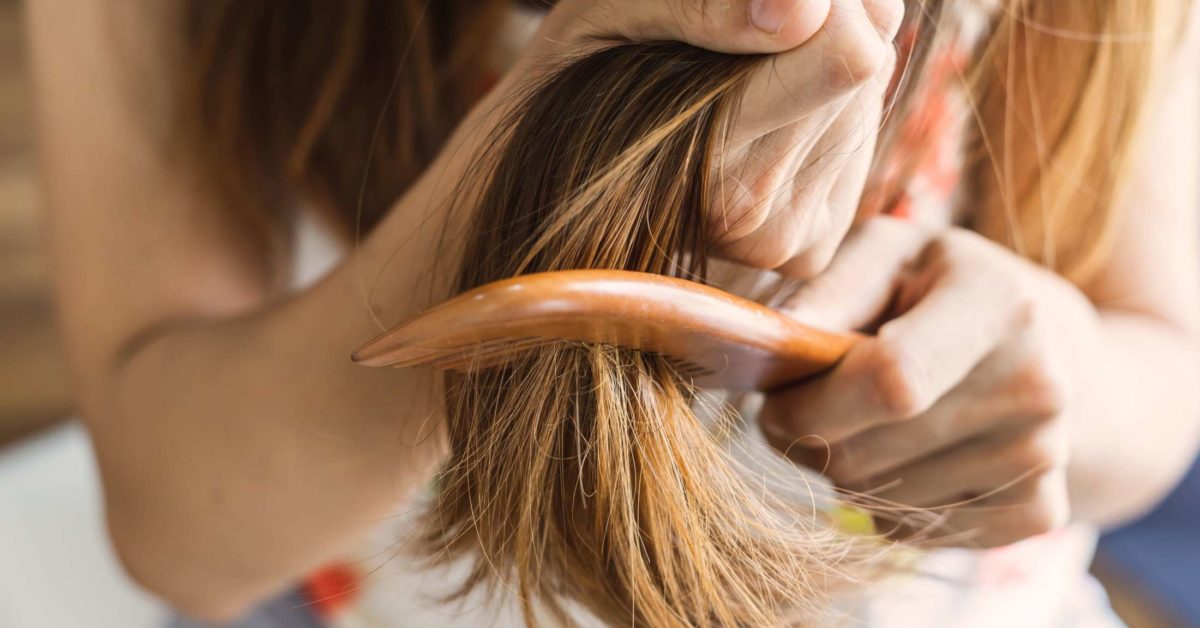Looking for a solution for your brittle nails or frizzy, constantly shedding hair? Then, you must have already come across the terms keratin and biotin. It could have been at the drug store where you bumped upon biotin keratin pills that promise to restore your mane’s long lost glory or is it the fancy-looking biotin-enriched shampoos that populate the aisle of your favorite section in the supermarket? Well, we’ll offer you some biology homework help and explain what is the matter with those things.

Either way, it is imperative to know the difference between these two organically-occurring compounds for you to make an informed choice next time you are shopping for a reliable cosmetic supplement.
Biotin and Keratin are Both Core Components of Your Overall Beauty and Cosmetic Routine
Deep in the recesses of your skin’s dermis layer, encompassing your hair’s root, you will find a fibrous, sinewy-like protein known as keratin. In fact, in case you didn’t know, keratin makes up more than 90% of your hair. In short, it plays a critical role in the maintenance of your hair’s density, strength and overall handsomeness. You can also find this protein in your skin and nails, making it one of the most important protein structures to one’s general attractiveness. It’s no wonder biotin keratin vitamins have recently become prized jewels and highly sought-after supplements.
That being said, to fortify and boost your body’s natural keratin production, you have to make sure that you are consuming enough building blocks to keep your tresses looking lustrous, thick and satiny. This includes a balanced diet with plenty of amino acids, minerals and vitamins. As you can see, the ancient adage ‘beauty starts from within’ still rings true to this day. And that’s why you may want to fill any nutritional gaps in your diet with quality biotin and keratin for hair supplements and food additives.
Speaking of supplements, many skin,hair and nails formulas might deliver nutrients and vitamins, but very few actually supply bioavailable keratin. This is mostly because of the inherent difficulty in converting and assimilating this protein into a useful form that the body can make good use of. Which, of course, is why you need to make sure that the supplement you’re buying has proven keratin bioavailability through a series of laboratory tests and also the past/present user reviews.
Biotin Belongs to the B-Family
Biotin, on the other hand, is part of the little-known Vitamin B family. You will often come across numerous skin, hair and nails beauty agents such as shampoos and lotions that claim to be enriched in this hard-to-get micronutrient. Having said that, your best bet would be consuming it through your diet by including foods rich in biotin in your eating routine, such as fresh lean meat, nuts, eggs, bananas etc.
As far as your hair goes, biotin acts mainly as a form of mini-transport that helps to carry oxygen to far-flung cells in the follicles, scalp and other supporting structures. Your body is also known for using biotin to synthesize non-essential amino acids which are later moulded to form keratin. You can now see why keratin and biotin go hand in hand in nutritional circles. Biotin is also believed to play a minor role in the maintenance of correct blood sugar levels.
What are Differences Between Keratin and Biotin?
So far, we have only explored the association between keratin and biotin, which is, they both play a role in the maintenance of our skin and hair infrastructure. But that’s where the similarities end.
For starters, keratin is majorly a protein while biotin is predominantly a vitamin. To add on this fact, biotin is considered a water-soluble nutriment from the B-Vitamin family while keratin is a water-insoluble complex protein that can be traced back to a family of structural fibrous proteins.
Secondly, the monomers ( basic unit ) of biotin are majorly amides whereas keratin’s monomers are actually amino acids.
Which One Should You Take to Solve Your Hair Loss Woes?
In the context of improving the overall appearance of your skin and hair, both are equally as important. To put into a relatable perspective, biotin is more like the cement or glue that holds together your home’s drywall sheets. Keratin, on the other side of the divide, is the drywall itself. You need the combination of these two to come up with a structurally and mechanically sound architecture. In a similar tandem, you need both keratin and biotin for strong and healthy nails and hair strands.
Now that we are discussing hair loss and breakage, it is crucial to appreciate the role of collagen in the formation and synthesization of keratin. You see, collagen forms approximately 40% of the body’s building blocks needed for a variety of proteins including keratin. In short, it provides the much-needed scaffolding for the formation of this fibrous protein. In fact, collagen peptides harbour many of the critical amino acids needed to synthesize keratin. And this means that taking collagen and biotin together boosts your body’s cumulative keratin production and could even help regrow fallen hair and bald spots faster.